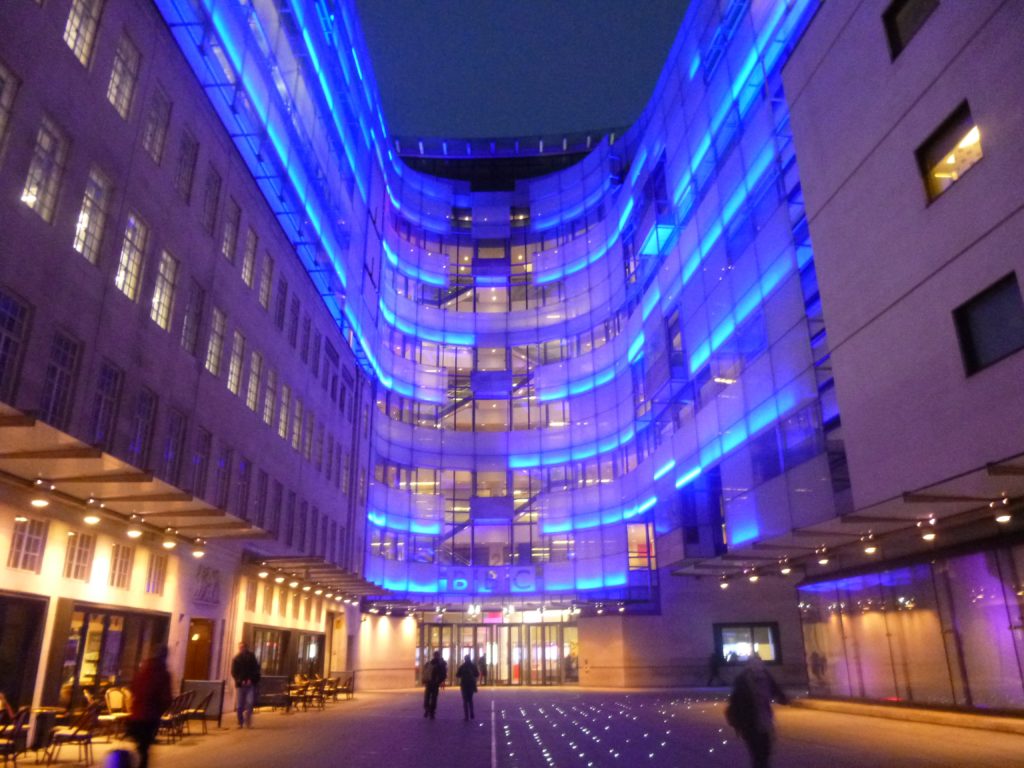The Peninsula
A British Voice in North Korea: A Threat to the Regime?
Published October 11, 2017
Category: North Korea

By Jeff Zwick
The BBC may have just put the North Korean regime in a jam. As one of its 12 new language services, BBC Korea is now up and running. In addition to the website, the service’s radio transmissions will be accessible to Koreans on both ends of the peninsula. This move by the London-based news network presents the North Korean regime with two bad options: jam the transmissions, as it has already done, or let the programs run uninterrupted. Given the fact that the DPRK has active relations with the UK – the DPRK has an embassy in London and the UK has an embassy in the DPRK – jamming the radio transmissions may result in North Korean citizens questioning the regime’s motives behind blocking a news network from a country with whom relations are active. If the regime chooses the second option, allowing the transmissions to run uninterrupted, the regime allows outside information to enter the reclusive country, something that it has long opposed.
According to the Economist, there are at least 10 foreign radio stations transmitting to North Korea. These include U.S. and South Korea-based radio stations. It may be simple for the North Korean people to understand why their government jams radio transmissions from the U.S. and South Korea-based news networks. The North has long demonized these countries and has no active relations with either of them. It may be more difficult for a North Korean citizen to accept the jamming of foreign radio transmissions from a country with which the DPRK has active relations like the newest foreign radio station on the scene, the London-based BBC.
The relations between the DPRK and the UK have recently become less stable with the North threatening the UK’s “miserable end” if it joins the U.S. and South Korea in military drills. The North Korean government will likely need to continue such rhetoric, placing the UK in the same category as its enemies, the U.S., South Korea, and Japan, in order to justify the jamming to the North Korean people. If it jams the BBC transmissions without taking these actions, it would be clearer to North Korean citizens that there is an unknown motive behind the censorship. That level of uncertainty and confusion could build and develop into an unfavorable situation for the regime. On the other hand, if the regime allows the broadcasts to air uninterrupted, the information could influence the thoughts and actions of North Korean people.
Legally, North Koreans can only listen to state-run radio. Radios sold in North Korea are programmed to only receive transmissions from such legal channels. There are ways around this but even for those with access to a radio which can receive foreign broadcasts, the regime makes efforts to jam the transmissions. Despite these censorship efforts, some North Koreans tune into foreign radio programs. After interviewing 350 North Korean refugees, defectors, and travelers a survey by the Broadcasting Board of Governors (BBG), cited in a report by Intermedia, discovered that 72% of the interviewees learned of outside information by word of mouth. The second highest source at 11% was foreign radio. Of the 103 foreign radio listeners, 61% stated that they listened to foreign broadcasts to “learn news about the outside world.” When this group was asked how often they listened, 46% stated that they listened weekly.
There seems to be an appetite for outside information amongst some North Koreans and its consumption has led to changes within North Korean Society. One North Korean in the Intermedia study said the viewing of South Korean and Chinese dramas has caused men to confess their feelings to women and rather than arranged marriages, most couples nowadays date before getting married. This specific change may not be threatening to the regime but it does show that outside information has an effect on North Koreans.
If the DPRK’s relations with the UK translate into a base of trust for North Korean citizens, the rate of change in North Korean society that follows could potentially be larger than that of previous years. If there is indeed a base of trust for the BBC in North Korea, jamming the transmissions may yield more dire results for the North Korean government than allowing it to air uninterrupted. The idea of something becoming more interesting after it is restricted or censored is referred to as the Streisand Effect. It is anyone’s guess as to what this effect would look like in North Korea, but with BBC on the air, the chances of such an effect may have just increased.
Jeff Zwick has a Master’s degree in Asian Studies from the University of Utah and is currently an intern at the Korea Economic Institute of America. The views expressed here are the author’s alone.
Photo from Tim@SW2008’s photostream on flickr Creative Commons.
